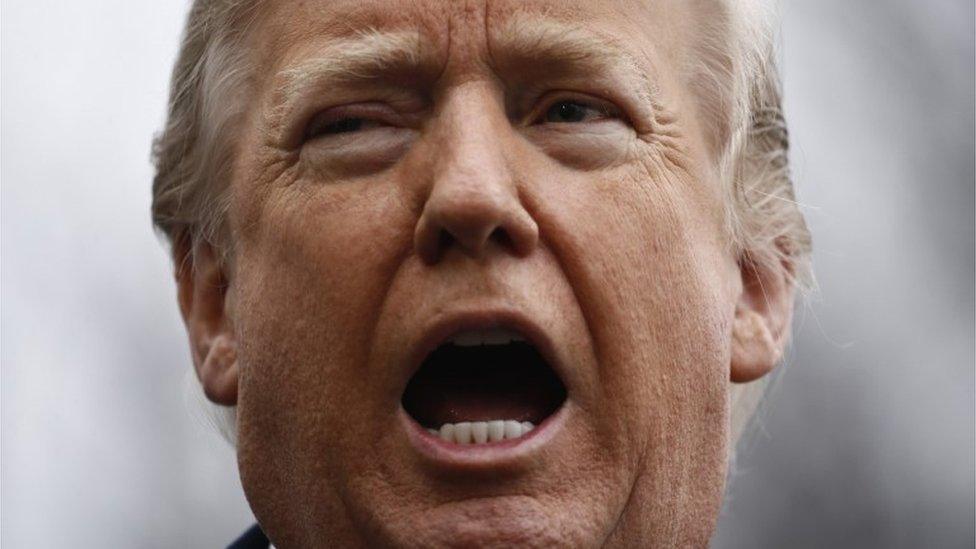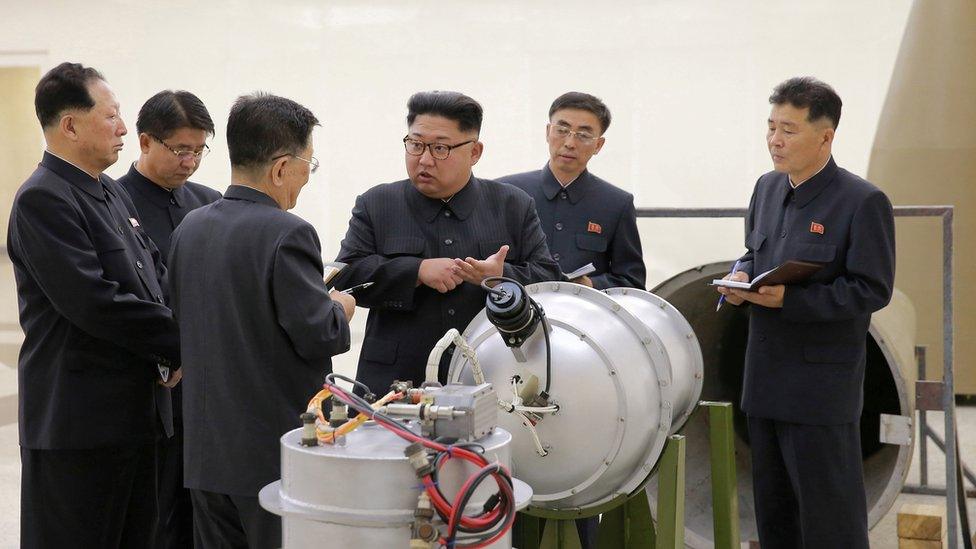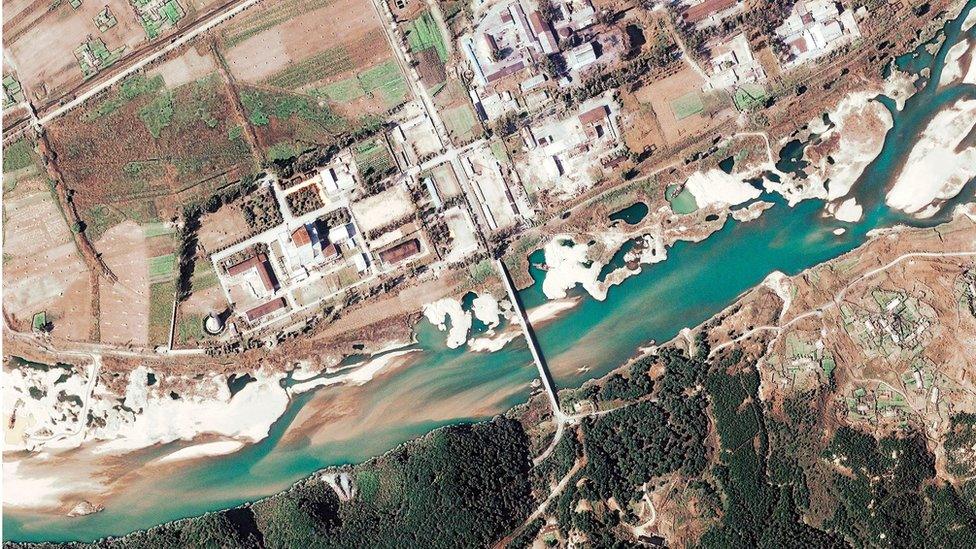US to impose 'largest ever' N Korea sanctions
- Published

The United States is imposing a fresh set of sanctions on North Korea - the "largest ever", President Trump says.
The measures target more than 50 ships and maritime transport companies in North Korea, but also China and Taiwan.
North Korea is already under a range of international and US sanctions over its nuclear programme and missile tests.
But it continued tests last year, including tests of a nuclear weapon and a long-range ballistic missile capable of reaching the US.
The US says the new sanctions are designed to put a further squeeze on North Korea, cutting off sources of revenue and fuel for its nuclear programme and clamping down on evasion of already existing restrictions.
The US treasury department lists one individual and 27 companies, external.
Sixteen, mainly shipping companies, are based in North Korea, but five are registered in Hong Kong, two on the Chinese mainland, two in Taiwan, one in Panama and one in Singapore.
Twenty-eight ships are on the list, again mostly North Korean, but two are Panama-flagged, one from the Comoros and one Tanzania-flagged.
Speaking at a new conference on Friday, President Trump warned of serious consequences if the latest round of sanctions did not generate results.
"If the sanctions don't work we'll have to go phase two - and phase two may be a very rough thing, may be very, very unfortunate for the world," he said.
"It really is a rogue nation. If we can make a deal it'll be a great thing and if we can't, something will have to happen."
He did not specify what "phase two" would entail.
The US has been building sanctions against the regime since 2008 and the latest restrictions could come on top of sanctions announced in November - directed at North Korean shipping operations, as well as Chinese companies trading with Pyongyang.
The United Nations followed that up in December with a raft of sanctions, backed by all 15 members of the Security Council, which included measures to cut North Korea's petrol imports by up to 90%.
'Charm offensive'
The Trump administration's announcement comes as North Korea conducts what is being seen by Western powers as a charm offensive at the Winter Olympics in South Korea.
US leaders have been keen to stress that North Korea still poses a nuclear threat despite warming ties with the South.
The president's daughter Ivanka is in South Korea to attend the closing ceremony of the Games and Vice-President Mike Pence was there for the opening.
However, no meetings have taken place with senior North Korean officials attending, including Kim Yo-jong, sister of the North Korean leader Kim Jong-un.

Sanctions have done nothing to deter North Korea in its development of missiles and nuclear technology.
Last year saw the first test of a long-range missile thought capable of reaching Washington, but it is still not clear if North Korea has mastered the technology needed to miniaturise a nuclear device for a warhead.
Also on Friday, Treasury Secretary Steve Mnuchin said Mr Trump's administration is working on new sanctions against Russia over alleged meddling in the 2016 presidential election and other activities.
"I can assure you that is in the process. I will be back here within the next several weeks to talk about that," he said.

North Korea's response to sanctions
30 November 2016: UN sanctions targeted North Korea's valuable coal trade with China, slashing exports by about 60% under a new sales cap. Exports of copper, nickel, silver, zinc and the sale of statues were also banned
What happened next? On 14 May 2017, North Korea tested what it said was a "newly developed ballistic rocket" capable of carrying a large nuclear warhead
2 June 2017: UN imposed a travel ban and asset freeze on four entities and 14 officials, including the head of North Korea's overseas spying operations
What happened next? On 4 July, North Korea claimed it had carried out its first successful test of an intercontinental ballistic missile (ICBM)
6 August 2017: UN banned North Korean exports of coal, ore and other raw materials and limited investments in the country, costing Pyongyang an estimated $1bn - about a third of its export economy
What happened next? On 3 September, North Korea said it had tested a hydrogen bomb that could be miniaturised and loaded on a long-range missile.
21 November 2017 US unveils more sanctions targeting North Korean shipping and Chinese companies that trade with Pyongyang
What happened next? North Korea tested a new long-range missile, Hwasong-15, which it claimed could reach anywhere in the US
22 December 2017 The UN Security Council imposed new sanctions, including measures to slash North Korean petrol imports by up to 90%
What happened next? On 1 January 2018 Kim Jong-un warned a nuclear launch button "is always on my table", but also raised the prospect of sending a team to the Winter Olympics in the South

- Published21 April 2020

- Published10 August 2017
